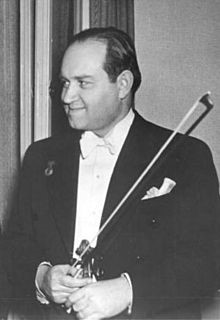Monkey Business | part three of three (Oistrakh) by Thomas Wolf
There were few violinists my grandmother admired so much as David Oistrakh. From the time of his first tour in 1955 when she gave the after-concert party for him in Philadelphia to the much heralded 1959 visit, Lea made sure she attended as many of his programs as she could, even if they involved the same program selections. Not only was the music-making profound, but she could talk to him confidentially about the life and career of her sister, Anna, in the Soviet Union with whom she had not communicated for a quarter century as it was simply too dangerous. Oistrakh, in turn, treated her as the beloved patron to be celebrated by all Soviet musicians for her generous act of sending her beautiful Amati violin to the Soviet Union to be used by some emerging superstar – an event discussed in my book, The Nightingale’s Sonata.
Sadly, when Oistrakh returned to perform in Philadelphia on December 17, 1965, Lea had passed away only a few months before. But even in death, she touched his life one last time. During a subsequent concert tour in January 1968, he was scheduled to play the first Shostakovich violin concerto with the Philadelphia Orchestra. My mother, Irene, received permission to give a party in Oistrakh’s honor after the Friday afternoon concert. The violinist had had medical problems, including a serious heart attack, but was now cleared to travel and perform. Irene recalled the event in an oral history (transcribed below):
I invited Oistrakh to come with a few other people for dinner at the Cosmopolitan Club, and of course he sat next to me and we spoke Russian and everybody else was speaking English. I said, “I’m so happy that you are feeling so well and you played such a wonderful concert.”
And he said, “Yes, but it’s terrible for me to walk on stage because I’ve had such an unhappy experience.”
When he was ill, he [had] received letters ... from a woman in Germany hoping that he would get well. He would answer the first letter, and then the letters kept coming. Finally, Mr. Oistrakh realized this was ridiculous, that this must be some nut that was writing all these long letters, so [he] stopped answering … [Then] a letter came to him which said, “I have put the evil eye on you because you are such a bad man … You did not answer. And I’m sending you the little statue that will be a curse upon you.”
Well, [he] went into a complete [panic]. The first time he went on stage after the letter, a string broke. The second time he went on stage, something [else] happened. So when he came to Philadelphia, he was in an absolute panic.
Irene understood superstitious Russians – her mother had been one. An idea occurred to her. She told Oistrakh that Lea had a collection of monkey figurines (some with violins) and that Lea had sometimes used one of her monkeys as a talisman, claiming it had magical powers. Irene’s oral history continues:
I said to him, “Well, you know, my Mother always carried with her a very special [charm]… She carried charms which really kept all evil away” – (I mean, this is a serious conversation we're having) – “And it’s very important to have something like that.”
“Oh,” he said, “really...?”
I said, “Would you like to have one of her charms since she’s passed away? I have them and they’re very special.”
“Oh,” he said, “that would be so wonderful. I would be so happy to have one of those because it’s very important to have to keep the evil away.”
And thus, the deal was struck. Irene promised to bring the talisman backstage before Oistrakh’s evening performance. But it turned out not to be so simple. Irene came down with a very high fever, and the weather outside was raging. She sent a reluctant Billy Wolf to do the deed. Indulging the crazy Russian family he had married into, Billy did indeed present the monkey to Oistrakh backstage in front of an admiring audience of well-wishers. According to Billy, the violinist seemed immensely grateful, but neither man could speak the other’s language so nothing was said. Irene was curious about whether the monkey continued to travel with Oistrakh after he left Philadelphia, and she looked forward to his next concert there so that she could ask him whether the monkey had helped. But there was no next time. Oistrakh’s heart finally gave out in 1974, before he could make another American tour.
